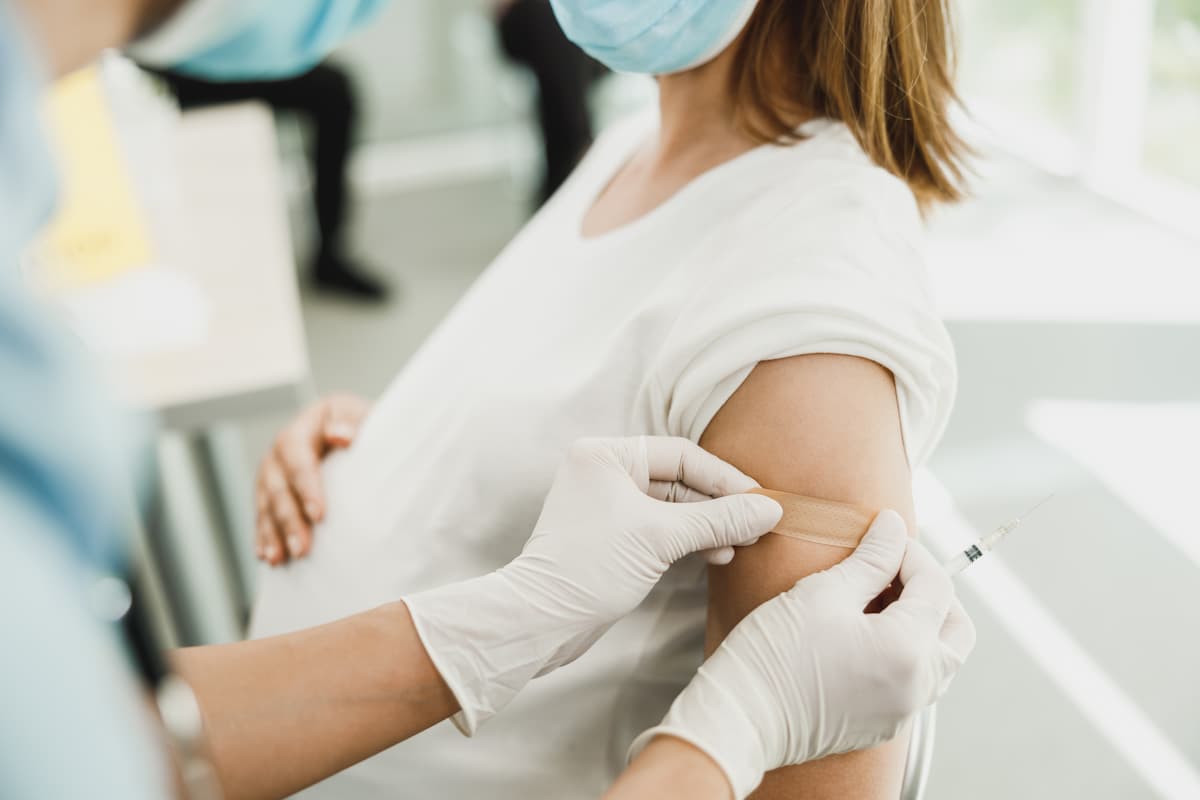- Clinical Technology
- Adult Immunization
- Hepatology
- Pediatric Immunization
- Screening
- Psychiatry
- Allergy
- Women's Health
- Cardiology
- Pediatrics
- Dermatology
- Endocrinology
- Pain Management
- Gastroenterology
- Infectious Disease
- Obesity Medicine
- Rheumatology
- Nephrology
- Neurology
- Pulmonology
ACIP Recommends Maternal RSV Vaccine to Protect Newborns
Members of the ACIP voted on Friday to recommend Pfizer’s maternal bivalent RSVpreF vaccine to protect newborns from severe RSV illness.

The US Centers for Disease Control and Prevention’s (CDC) Advisory Committee on Immunization Practices (ACIP) on Friday voted to recommend the first maternal respiratory syncytial virus (RSV) vaccine to protect newborns from severe RSV infection.1
By an 11-1 vote, the members of the ACIP recommended that pregnant women receive a single dose of Pfizer’s bivalent RSV prefusion F protein (RSVpreF) vaccine (Abrysvo™) during 32 through 36 weeks gestation to preventlower respiratory tract disease (LRTD) caused by RSV in infants, according to a CDC press release.1
“This fall marks the start of the annual respiratory infection season in the Northern Hemisphere, and we are prepared with vaccines against multiple infectious diseases and—for the first time in history—an available RSV vaccine to help prevent disease in two at-risk populations,” said Luis Jodar, PhD, chief medical officer, Vaccines Medical Development and Medical/Scientific Affairs, Pfizer, in the company’s September 22, 2023, press release.2
“Today’s ACIP recommendation for maternal immunization with Abrysvo reinforces the wide-ranging impact vaccines can have, including helping protect infants immediately at birth from the potentially severe and life-threatening complications that can develop from RSV,” continued Jodar. “Approximately 75 percent of RSV-related hospitalizations in newborns and infants occur in the first six months of life.”2
In addition, the ACIP voted to approve the bivalent RSVpreF vaccine for the Vaccines for Children Program for pregnant women aged <19 years, according to the CDC release.1
“This is another new tool we can use this fall and winter to help protect lives,” said Mandy Cohen, MD, MPH, director, CDC. “I encourage parents to talk to their doctors about how to protect their little ones against serious RSV illness, using either a vaccine given during pregnancy, or an RSV immunization given to your baby after birth.”1
In August of this year, the US Food and Drug Administration approved the maternal RSV vaccine for use in pregnant individuals to prevent LRTD and severe LRTD caused by RSV in infants from birth through 6 months of age.
In the press release, the CDC stated that the RSVpreF vaccine is available in “some locations” in the US, and that an increase in availability is expected in the coming weeks.1
References:
1. CDC recommends new vaccine to help protect babies against severe respiratory syncytial virus (RSV) illness after birth. CDC. Press release. September 22, 2023. Accessed September 25, 2023. https://www.cdc.gov/media/releases/2023/p0922-RSV-maternal-vaccine.html
2. Pfizer broadens portfolio of respiratory vaccines recommended by CDC Advisory Committee with ABRYSVO™ for RSV. Pfizer. Press release. September 22, 2023, Accessed September 25, 2023. https://www.pfizer.com/news/press-release/press-release-detail/pfizer-broadens-portfolio-respiratory-vaccines-recommended
